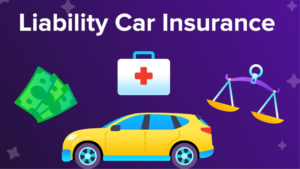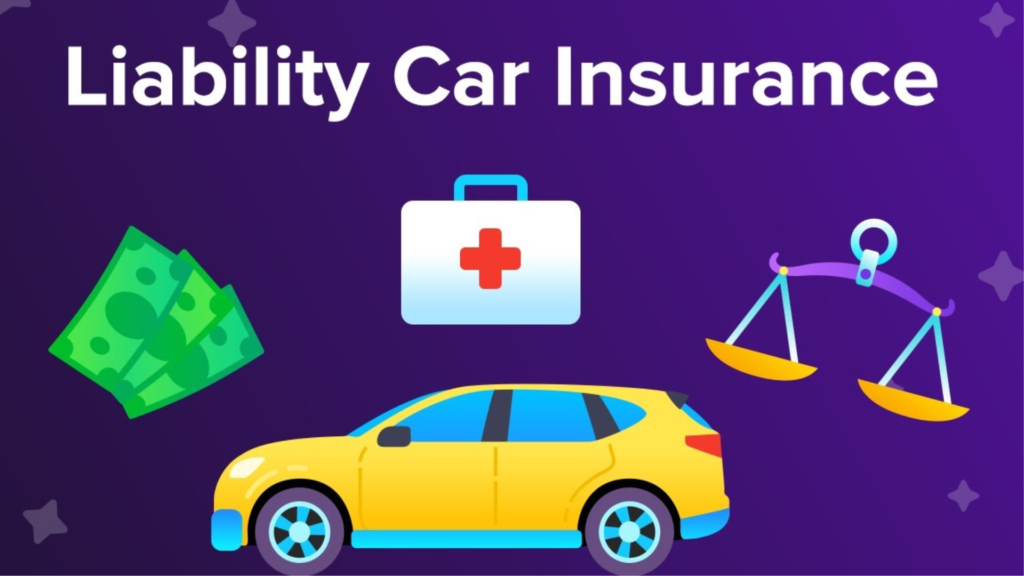When it comes to car insurance, it can sometimes feel like you’re navigating a maze of confusing terms, policies, and premiums that only seem to get more complicated. But don’t worry! You’re not alone in this—we’ve all been there, trying to figure out how to balance good coverage with a reasonable price. The positive news is that it doesn’t have to be that complicated. With a little bit of knowledge, you can save money and get the coverage you need. This is your comprehensive guide to comprehending car insurance, maximizing savings, and guaranteeing comprehensive coverage.
What exactly is car insurance?
First things first: car insurance is a contract between you and an insurance company that provides financial protection in case of accidents, theft, or damage to your vehicle. In exchange for a premium (the amount you pay regularly), your insurance company will cover certain costs if something goes wrong.
Understanding the benefits of each type of coverage is essential to ensuring your proper protection.
Types of Car Insurance Coverage
The world of car insurance is full of acronyms and terms that can sound like another language. Here’s a breakdown of the most common types of coverage you’ll encounter:
1. Liability Insurance
This is typically required by law. Liability insurance covers the costs of damages you cause to others in an accident, including medical bills and property damage. However, it doesn’t cover your own damages.
- Bodily Injury Liability: This insurance covers the medical expenses for the other driver or passengers in an accident that you caused.
- Property Damage Liability covers damages to another person’s property, such as their car or a fence you may have accidentally hit.
2. Collision Insurance
This coverage helps pay for repairs to your own car if you’re in an accident, regardless of who’s at fault. If you have a car loan or lease, your lender may require it.
3. Comprehensive Insurance
Comprehensive insurance protects your car from non-collision-related incidents, such as theft, vandalism, or damage from natural disasters. Consider comprehensive insurance as a safeguard against unforeseen events, such as a pesky bird deciding to decorate your car.
4. Uninsured/Underinsured Motorist Coverage
Imagine being in an accident where the other driver doesn’t have enough (or any) insurance to cover your damages. That’s where this coverage steps in. This coverage safeguards you against financial losses if the other driver is at fault but is unable to pay.
5. Personal Injury Protection (PIP)
PIP can assist in covering medical expenses, lost wages, and even funeral costs in the event of an accident, as we never know what the future holds. It serves as a safeguard against unforeseen circumstances.
How Does Car Insurance Work?
Car insurance works on a pretty simple principle: you pay a premium, and the insurance company covers costs associated with accidents or damage based on the terms of your policy. However, it’s crucial to comprehend the extent of coverage and its limitations. Not all policies are equal, and you want to avoid unexpected fees in the event of a problem.
The Claims Process: In a Nutshell
If you’re involved in an accident, you file a claim with your insurance company. They’ll assess the damage, either by sending an adjuster to inspect your car or using photos and reports you provide. They will determine the amount of money to offer you (if any) and the extent to which your policy covers the repair cost based on this assessment.
Now, let’s dive into the juicy part: how you can save money while still getting the best coverage.
Tips to save money on car insurance
We all love saving money, but no one wants to skimp on their coverage. Finding a balance between not overpaying for insurance and leaving yourself vulnerable in the event of an accident is crucial. Here are some ways to lower your premium without compromising on protection.
1. Shop Around for the Best Deals
Just like you wouldn’t buy the first pair of shoes you see (unless you have an unhealthy obsession with shoes), don’t settle for the first car insurance quote you get. Take the time to shop around, compare prices, and check different coverage options. Many insurers offer free online quotes, so there’s no excuse for not doing some research.
2. Bundle Your Policies
Insurance companies love and reward people who bring them all their business. If you have multiple insurance needs (home, life, and renters), consider bundling them together. Many insurers offer discounts for customers who have more than one type of coverage.
3. Choose a Higher Deductible
The deductible represents the out-of-pocket payment required before your insurance coverage begins. If you can afford to pay a higher deductible in case of a claim, you can save money on your monthly premiums. It’s like agreeing to a slightly higher “out-of-pocket” price for more affordable payments later. Just be sure you can afford that higher deductible if disaster strikes.
4. Drive safely! (Yes, it’s that simple!)
Your driving history significantly influences your insurance premium. If you have a clean driving record, you’re likely to get a lower rate. So, avoid speeding tickets, stop running red lights (we know it’s tempting when you’re late), and keep your hands off the phone while driving.
5. Install Safety Features
Insurance companies love vehicles that come with built-in safety features, such as anti-theft systems, airbags, and backup cameras. Many insurers will offer discounts if your car has these features. Not only do they make you safer, but they also make your premiums lower. Win-win!
6. Take a Defensive Driving Course
Yes, it’s a thing. If you take a defensive driving course, you can show your insurer that you’re committed to becoming a better, safer driver. Many companies offer discounts for course completion, so why not learn a few new tricks while saving money on your insurance?
7. Maintain good credit.
You should monitor your credit report as it influences your car insurance rates. A favorable score can lead to lower premiums, so it’s worth putting in the effort to keep your financial life in order.
Factors That Influence Your Car Insurance Premium
Understanding the factors that impact your car insurance premium is key to controlling your costs. Here’s a list of some major factors that can cause your premiums to go up or down:
| Factor | Effect on Premium |
|---|---|
| Driving History | Clean record = lower rates; accidents or tickets = higher rates |
| Age | Younger drivers (especially teens) usually pay more. |
| Car Model | Sports cars and luxury vehicles can cost more to insure. |
| Location | High-risk areas, such as urban settings and areas with high crime rates, have the potential to increase premiums. |
| Credit Score | Poor credit can lead to higher premiums. |
| Coverage Limits | Higher limits = higher premiums |
| Deductible | A higher deductible results in a lower premium, but it also increases out-of-pocket expenses. |
How Much Car Insurance Do You Really Need?
Let’s talk about the age-old question: How much coverage is enough? It’s a tricky one because the answer depends on a variety of factors, including your financial situation, the value of your car, and your comfort level with risk. But here’s a general rule:
- Minimum coverage: This is the bare minimum required by law. It’s cheap, but it might not cover much in the event of an accident.
- Full coverage: This includes liability, collision, and comprehensive insurance. It’s more expensive, but it offers more protection if things go south.
- Gap coverage: If you owe more on your car than it’s worth, gap coverage helps pay off your loan if your car is totaled.
Final Thoughts
It can be overwhelming to navigate the world of car insurance, but with the right approach, you can save money and ensure adequate protection. Remember, your car insurance is there to give you peace of mind. So take the time to review your options, shop around for the best deals, and find the right coverage for your needs.
Now, secure your policy, drive safely, and relish the journey (without exceeding your budget). Remember to focus on the road, or you may require more than just insurance!







![Breaking Down the Features of [Computer Model Name] A USA Perspective](https://vibranthealthlife.com/wp-content/uploads/2025/01/Breaking-Down-the-Features-of-Computer-Model-Name-A-USA-Perspective-1024x576.png)